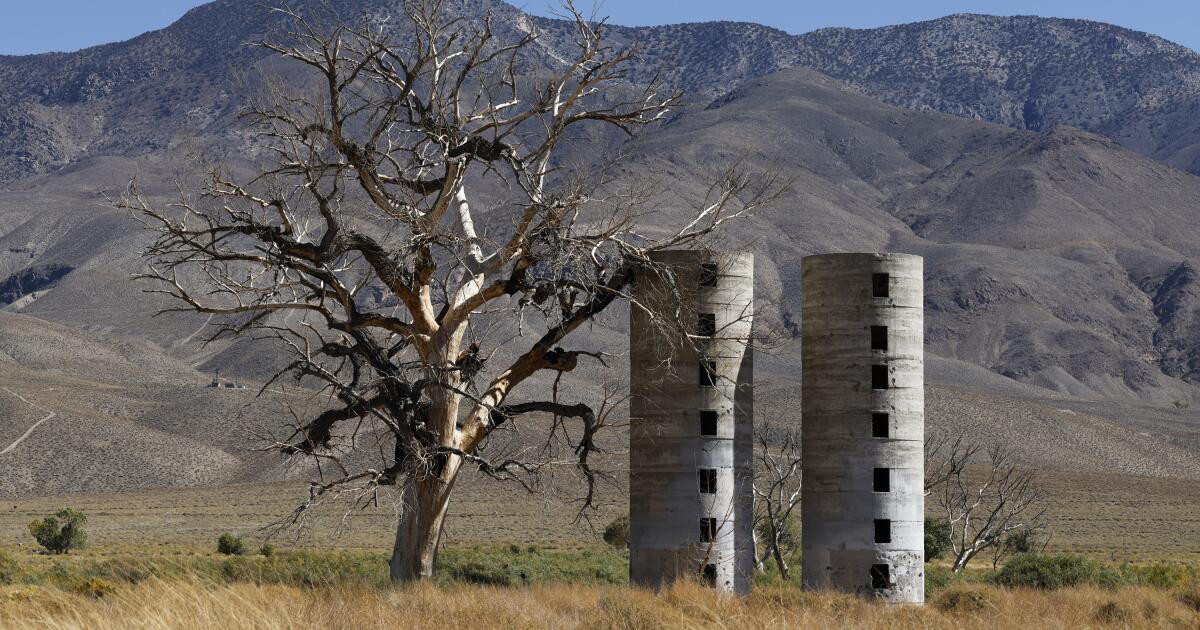BREAKING: Tensions escalate as Native tribes in Owens Valley demand urgent negotiations with Los Angeles over critical water rights. The Bishop Paiute Tribe and other Indigenous groups are fighting against the city’s extensive groundwater pumping, which they claim is devastating their ancestral lands.
In a stark desert landscape, the hum of electric pumps echoes as Los Angeles extracts water from one of 105 wells it owns in the Owens Valley. The city’s actions, which date back to the early 1900s, have not only drained rivers but also significantly reduced groundwater levels, leaving tribal leaders like Teri Red Owl alarmed. “We’ve seen so many impacts from groundwater pumping,” she stated, highlighting the environmental devastation that has left many areas parched.
The Los Angeles Department of Water and Power (DWP) claims to manage these resources sustainably, stating it now pumps between 62,000 and 83,000 acre-feet of groundwater annually—equivalent to 12% to 16% of Los Angeles’s total water consumption. However, tribal leaders argue that the city’s practices continue to extract vital resources from their homeland, leaving the valley’s ecosystems in dire straits.
Tribal members, known as the Nüümü, assert that the city’s actions have transformed their once lush landscape, known as Payahuunadü or “the land of flowing water,” into a dry wasteland. “My goal is to have a healthy homeland,” Red Owl emphasized, calling for reduced extraction to revive their ecosystem.
The conflict over water rights traces back to a 1936 agreement between the federal government and Los Angeles, which established small reservations without granting water rights to the tribes. This oversight has fueled a growing movement among the tribes to reclaim their rights and restore their environment. Recently, over 30 scholars urged Los Angeles Mayor Karen Bass to reopen negotiations with the tribes, emphasizing the need for equitable water access.
DWP officials assert they are committed to environmental restoration, pointing to ongoing projects aimed at improving water management. However, critics, including local conservationists, argue that these efforts have fallen short and have not sufficiently addressed the ecological harm caused by years of over-extraction. “We’ve lost riparian habitat here,” said Lynn Boulton, conservation chair for the Sierra Club.
The urgency of this situation is palpable. Tribal members report that historically significant springs have dried up, impacting not only the environment but also their cultural practices. Noah Williams, a member of the Bishop Paiute Tribe, lamented the loss of a once-thriving spring-fed pool, stating, “This is a man-made drought.”
As negotiations remain stagnant, the DWP continues to monitor groundwater levels, claiming their methods ensure ecological balance. But tribal leaders remain skeptical, asserting that the current extraction rates are unsustainable and damaging to their way of life. “You’ll see everything start drying up,” warned local farmer Thomas River Watterson, who manages a garden for the tribe. “I feel like they’re taking everything they can, every single drop.”
As this developing story unfolds, the spotlight remains on the Los Angeles city officials and their response to the tribes’ urgent demands for water rights. The situation draws attention to the broader implications of water management and Indigenous rights in California and beyond. The coming weeks could prove pivotal as tribal leaders continue to advocate for a sustainable future for their communities and the land they cherish.
Stay tuned for updates on this critical issue as negotiations progress and the fight for water rights intensifies.
